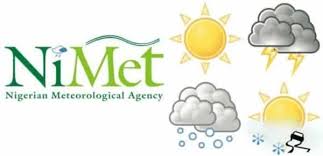
Pulmonologists fear lung cancer rise over high levels of air pollution
According to environmental specialists, air pollution has increased recently, which has pulmonologists concerned about an increase in chronic inflammatory lung disorders.
This warning follows last week's publication, in collaboration with the UN Children's Fund, of a thorough review of air quality and health effect statistics for all countries worldwide in 2021 by the State of Global Air.
According to a report published by the Health Effects Institute, 8.1 million deaths worldwide in 2021 were attributed to air pollution.
It also revealed that over 700,000 child deaths occurred in 2021 and that children under the age of five are particularly susceptible to the harmful effects of air pollution.
Young children are particularly susceptible to air pollution, and exposure to it has been linked to one in five deaths worldwide.
In response to the findings, Kitty van der Heijden, Deputy Executive Director of UNICEF, stated that the harmful impacts of air pollution claim the lives of almost 2,000 children under the age of five every day.
She declared, "Nearly 2,000 children under the age of five die every day due to health effects linked to air pollution, despite advancements in maternity and child health."
"The next generation is suffering long-term consequences to their health and well-being because to our inaction. The urgency is clear on a global scale. Governments and corporations must take into account these estimations and locally accessible data in order to inform significant, kid-focused action to minimise air pollution and protect children’s health.”
The World Health Organisation defines air pollution as any chemical, physical, or biological agent that contaminates an indoor or outdoor environment, altering the atmosphere's inherent properties and having an impact on human health.
Abuja is the most polluted city in Nigeria, according to IQAir, a website that tracks and analyses air quality.
Nigeria's particle matter concentration, or PM2.5, is 4.8 times higher than the air quality guideline threshold set by the World Health Organisation, according to the country's 2023 air quality average.
Nigeria's average exposure to PM2.5 was 51.7 in 2019 and 56.5 in 2020, according to the SoGA data.
The year 2015 had the highest exposure mean, at 77.1 PM2.5, according to a review of all average exposure data from 1990 to 2010.
This suggests that in 2015, Nigeria’s outdoor air pollution rate was high.
Meanwhile, the WHO’s 2015 recommended annual air quality guideline level for PM2.5 was set at five, with a maximum of 15 on only three to four days per year.
According to a conference paper by Olufunke Adeyeye et al. on "Air pollution profile of Children with asthma in Lagos, Nigeria" presented at the Annual General Meeting and Scientific Conference of the Nigerian Thoracic Society, 2022, children were exposed to fine particulate matters both at home and during their commute to school.
It also mentions that the average PM 2.5 is 1.5 times higher than the WHO's current 24-hour PM2.5 exposure health recommendation, which puts kids at risk for worsening asthma symptoms, needing more medication, and ending up in the hospital.
Speaking on the subject, Cajetan Onyedum, a professor of pulmonology at the University of Nigeria in Nsukka, Enugu State, stated that the careless use of fossil fuels, the absence of laws governing the permissible amounts of emissions from manufacturers, and the inadequate availability of energy were huge contributors to air pollution in Nigeria.
He also pointed out that the slow transition to clean energy and the prevalence of wildfires contributed to the air pollution levels.
Speaking further about the SoGA report's implications for Nigerians' respiratory health, Onyedum hinted that an upsurge in respiratory tract illnesses may occur.
For instance, illnesses like asthma and chronic obstructive lung disease will strike the sufferers. Additionally, it is well recognised that prolonged exposure to air pollution can lead to cancer since breathed particulate matter, whether in the home or at work, can alter bodily cell structure.
Thus, COPD and cancer will be common. Furthermore, air pollution is believed to both induce and exacerbate cardiovascular illnesses. Therefore, there is a significant risk to the occurrence of certain illnesses," said the consulting respiratory physician.
He added that children run the danger of acquiring a number of respiratory conditions in the future, such as asthma, chronic obstructive pulmonary disease, and allergic rhinitis, if air pollution persists and they are exposed to it.
Control the rate of emission
As he was leaving, the pulmonologist gave advice to everyone working in low-air quality environments: use the proper face masks and try to avoid these areas.
The government must, above all, be involved in regulation—setting policies, supplying clean energy, controlling the types of cars that are driven in the nation, and controlling the surroundings in which factories are located. Everyone will benefit from doing this, he said.
In order to provide a safer environment for workers, the researcher on lung infections and asthma demanded that industries regulate their emission levels.
Regulations must be in place so that, when a company is located, we are aware of what it is emitting and where it is allowed to be located. In this manner, it is impossible for someone to simply wake up one morning, locate a factory anyplace, and contaminate the air in such a setting, he added.
The don also bemoaned the absence of prominent local national personalities and demanded coordinated efforts by the government and medical professionals to raise awareness of the risks associated with exposure to air pollution.
Therefore, the revelation of these numbers foreshadows grave peril for what may occur in the years to come. And the sooner we begin to consider ways to manage it, as I mentioned previously with regard to government regulations and lifestyle adjustment and even wearing a protective mask, the better for everybody,” the respiratory specialist said.
Adeyeye, a pulmonologist at Lagos State University Teaching Hospital in Ikeja, underlined in an interview that children's health problems deteriorate when they are exposed to air pollution.
She claimed that as a result, they require more medication and hospital stays, which lowers their quality of life, causes them to miss school, and lowers the income of their family.
The don mentioned factories, power plants, automobiles, industrial facilities, bush burning, forest fires, and cleaning products and aerosols as common contributors of air pollution.
Particulate matter, carbon monoxide, ozone, nitrogen dioxide, sulphur dioxide, and ambient tobacco smoke are pollutants of significant public health concern, according to Adeyeye.
"The World Health Organisation (WHO) reports that nearly all people on the planet—99 percent—breathe air that is high in pollutants and exceeds WHO guideline limits, with low- and middle-income nations having the highest exposure rates.
It may manifest as an acute reaction after brief exposure or as a chronic reaction after prolonged exposure. It also affects people of all ages, from infancy to old age, but its effects are more pronounced in susceptible populations, such as the young, the elderly, and those with underlying heart or respiratory diseases, the speaker added.
Adeyeye claimed that if action was not taken to lower air pollution levels, there would be a higher risk of lung cancer, increased hospital visits, lung infections, and a worsening of lung illnesses such as asthma, COPD, heart disease, and stroke.
The consultant respiratory physician also mentioned that the economic crisis would further worsen the air pollution problem in the country, stating that the situation had forced people to resort to using charcoal, wood, sawdust and agricultural residues for cooking.
She decried the low levels of awareness and advocacy and urged Nigerians to embrace the government’s provision of mass transit buses and trains to further reduce vehicular exhaust and traffic.
Speaking on the way out, the don called for a ban on indoor and outdoor smoking and the promotion of clean fuel for cooking and heating.
She emphasised that emission testing at the Vehicle and Inspection Office of the Ministry of Transportation must be truly conducted without individuals bribing their way out of the test.
“Candidly, the purchasing power of Nigerians needs to improve to support any initiative. However education, enlightenment and advocacy are important,” Adeyeye stressed.





